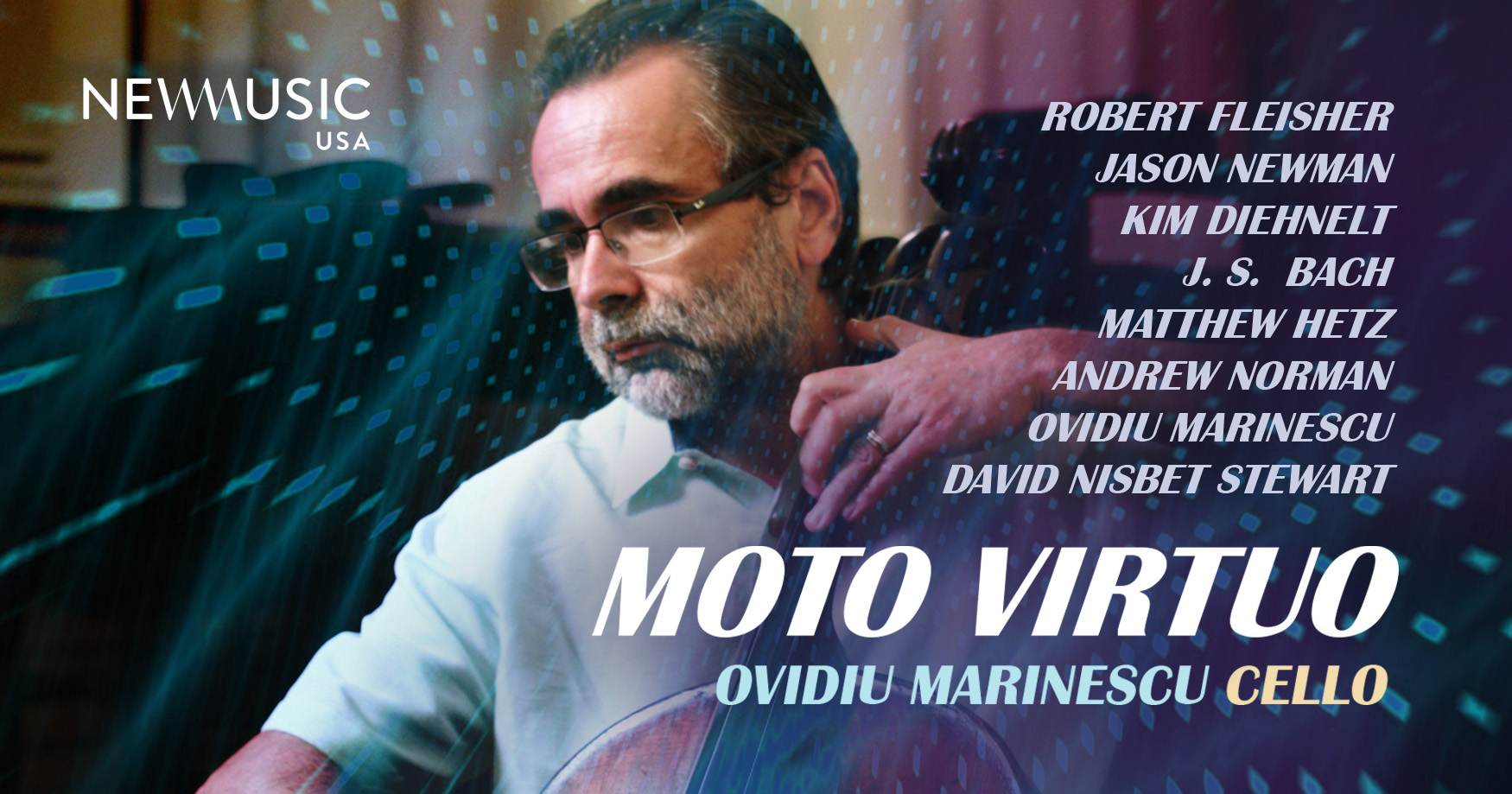
PARMA Recordings presents MOTO VIRTUO II, an online benefit concert with cellist Ovidiu Marinescu for New Music USA. This event is an extension of PARMA’s ongoing MOTO series, which has been praised as “bold and expressive” (Gramophone Magazine) and “tight, musical, technically virtuosic” (The Whole Note).
Since its launch in 2012, the MOTO series has premiered works by nearly three dozen composers in both recordings and performance. This live online program presents works by Robert Fleisher, Jason Newman, Kim Diehnelt, Matthew Hetz, Andrew Norman, David Nisbet Stewart, J.S. Bach, and one of the cellist’s own compositions.
New Music USA is the leading national resource for new music. The non-profit organization supports and connects music makers, organizations, and audiences by providing financial support through project grants, fostering new connections through various programs, and deepening knowledge and encouraging appreciation through its media programs. Donations collected will go towards furthering New Music USA’s efforts to support musicians, venues, and organizations impacted by the current crisis. Your donation is fully tax deductible via the 501(c)3 non-profit PARMA Music Festival LLC.
Please view our Tip Jar below to make your donation.
Visit www.newmusicusa.org for more information.

![]()
Program
- Robert FleisherMemoranda
- Jason NewmanRivulets for Solo Cello
- Kim DiehneltPostscript
- J. S. BachAllemande from Suite No. 2 in D minor
- Matthew HetzElegy for Solo Cello
- Andrew NormanFor Ashley
- Ovidiu MarinescuSuspended Between the Worlds
- David Nisbet StewartIntermezzo
About
PROGRAM NOTES
Suspended Between the Worlds was composed May 16-20, 2020 for MOTO VIRTUO II.
As with many of my cello pieces, it took me 4-5 days to compose this piece. For a week or so it lived with the title of Unnamed Piece, which I considered keeping. Nevertheless, I kept searching for a title to connect with the feelings blooming out of the music. Throughout the compositional process, with cello in hand, my subconscious brought out a sense of ancient times, far-away places, perhaps ancient Persia. About the same time, I was reading poetry by Rumi, the 13th-century Persian poet, Islamic scholar and jurist, theologian, and Sufi mystic. So many beautiful verses rose from the pages, but the title came out of this quote: “Dancing is not just getting up painlessly, like a leaf blown on the wind; dancing is when you tear your heart out and rise out of your body to hang suspended between the worlds.” And I hear in this piece not only mystical sounds, but also dancing and drumming.
BIO
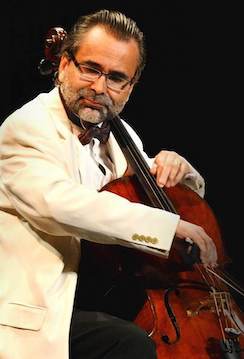
Ovidiu Marinescu, a native of Romania, is active as a cellist, conductor, composer, and educator. He has performed at Carnegie Hall, Merkin Hall, the Great Hall of the Moscow Conservatory, Rachmaninov Hall, Holywell Room in Oxford, Oriental Art Center in Shanghai, and many other venues around the world. He has appeared as a soloist with the New York Chamber Symphony, the National Radio Orchestra of Romania, Moscow Chamber Orchestra, Helena and Newark Symphonies, Southeastern Pennsylvania Symphony Orchestra, the Cleveland Philharmonic, Limeira Symphony in Brazil, Orquesta de Extremadura in Spain, and most orchestras in Romania. Recently, he served as a member of the jury and guest professor for the Greenhouse Foundation Awards and Festival in Seoul, South Korea, and Composer-in-Residence for the International Chamber Music Festival in Guatemala City. His works have been performed in Romania, China, Brazil, Guatemala, and across the United States.
Marinescu has had more than 10 album releases with PARMA Recordings and Cambria as a cellist, conductor, and chamber musician, as well as several independently-released recordings.
Marinescu has conducted the Russian Philharmonic Orchestra in Moscow, the Chamber Orchestra of the Romanian Radio, “New Russia” State Orchestra, the Bacau, Craiova, Ploiesti, Botosani, Targu Mures, and Brasov Philharmonic Orchestras in Romania, Filarmonica de Gaia in Portugal, Orquesta de Extremadura in Spain, the Helena, Newark, and Southeastern Pennsylvania Symphony Orchestras (USA), and the Vidin Sinfonietta in Bulgaria.
PROGRAM NOTES
Memoranda (2005) honors William Moffat, who taught music theory for many years at Northern Illinois University; I was hired to fill Bill’s position when he retired in 1983. Like my father, he taught sonar in the Navy at Key West during WW2. Bill earned his M.M. degree in cello at Yale in 1953, while Paul Hindemith was teaching there. The outer sections borrow from Bach’s Cello Suite No. 1 in G Major (Minuet), while the middle recalls selections from Bill’s M.M. recital—by Bach, Schubert, Frescobaldi-Cassado, and Casella. (Laura Nyro fans may hear an additional reference.) Shortly before Bill’s death in March 2006, our NIU colleague and friend, Linc Smelser, performed this heartfelt tribute for him. Later that month, Memoranda was premiered by Elizabeth Morrow (University of Texas, Arlington) at California State University, Fresno.
BIO
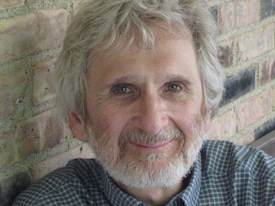 Robert Fleisher attended the H.S. of Music and Art in New York City, graduated with honors from the University of Colorado Boulder, and earned his doctorate in composition at the University of Illinois. Fleisher’s acoustic music has been described as “eloquent” (Ann Arbor News), “lovely and emotional” (Toronto Musicworks), “astoundingly attractive” (Perspectives of New Music), and “ingenious” (The Strad); his electroacoustic music as “rich, tactile” and “endearingly low-tech” (New York Times). Fleisher’s music is regularly performed in the United States and has been heard in more than a dozen other countries. His works may also be heard on Albany, Capstone, Centaur, Navona, Pnova, Sarton, and SEAMUS labels. Author of Twenty Israeli Composers (1997), Dr. Fleisher is also a contributing composer and essayist in Theresa Sauer’s Notations 21 (2009). He is Professor Emeritus at Northern Illinois University.
Robert Fleisher attended the H.S. of Music and Art in New York City, graduated with honors from the University of Colorado Boulder, and earned his doctorate in composition at the University of Illinois. Fleisher’s acoustic music has been described as “eloquent” (Ann Arbor News), “lovely and emotional” (Toronto Musicworks), “astoundingly attractive” (Perspectives of New Music), and “ingenious” (The Strad); his electroacoustic music as “rich, tactile” and “endearingly low-tech” (New York Times). Fleisher’s music is regularly performed in the United States and has been heard in more than a dozen other countries. His works may also be heard on Albany, Capstone, Centaur, Navona, Pnova, Sarton, and SEAMUS labels. Author of Twenty Israeli Composers (1997), Dr. Fleisher is also a contributing composer and essayist in Theresa Sauer’s Notations 21 (2009). He is Professor Emeritus at Northern Illinois University.
PROGRAM NOTES
Originally composed in 2007 and recently revised and updated in Spring, 2020. A relatively early, mature work of mine. After this recent revision, the imagery of small streams or “rivulets” came to mind and seemed fitting and descriptive for this music for solo cello. As is the case in many composers early works, there is a quality of searching and wondering; and this piece is no exception as there is emphasis on the moment, mystery and striving for what is to come.
BIO

Jason Newman is a pianist and composer based in the Philadelphia area, Pennsylvania. He received his Bachelor of Arts Degree in Music with an emphasis in Classical Composition and Jazz Studies from Lebanon Valley College in the spring of 2000. He received his Master’s Degree in Music Theory and Composition from West Chester University in the spring of 2016. Jason has been performing and booking shows throughout Philadelphia, Main Line, Lancaster and Harrisburg areas for his jazz trio, duo, solo & other ensembles for over the last fifteen years. With the current release of his debut trio album “Entwined”, Jason Newman continues to expand his reach musically through performance, composition and recording opportunities.
In addition to performing and developing his piano playing, Jason works by day in his private home studio as a composer of classical chamber & piano music. His Adagio for String Quartet was premiered & recorded by Curtis University’s “Astral Artists” String Quartet, at West Chester University, April 2014. His “motion-prelude” for solo piano was premiered by West Chester University pianist and professor, Dr. Carl Cranmer at the university in the spring of 2010. In 2008, his “sonata for piano” (commissioned work) was premiered by acclaimed Philadelphia classical pianist, Matthew Bengtson. In the fall of 2003, his preludes for piano (opus 1), were premiered by classical pianist Gary Gress, at the “concert for new music” series in Philadelphia, PA. He also maintains a full roster of private students, teaching piano repertoire, improvisation and composition throughout the greater Chester County and Philadelphia areas.
From 2004-2006, Jason worked as a keyboardist and co-composer with the original, modern rock band, Vista, based in Philadelphia, PA. The band performed throughout the northeast at a variety of venues, clubs & universities most notably in Philadelphia and in New York City. Vista released their debut album entitled WATERFUL in 2006. Band members included Philadelphia singer-songwriter & guitarist, Andrew Lipke, brother & lead guitarist, Phil Newman, bassist, Mike Wittrien & drummer, Chris Loser.
Along with many great collaborations, Jason has studied and mentored with David Bennett Thomas, Ron Thomas, Thomas Strohman, Dr. Scott Eggert, Dr. Dennis Sweigert, Andy Roberts, Jim Ridl, Phil Markowitz, Dr. Mark Rimple, Dr. Van Stiefel, Dr. Rob Maggio and with NYC internationally acclaimed jazz pianist & composer, Kevin Hays.
PROGRAM NOTES
From an enthusiastic, bold opening to helpless sarcasm touched by cynicism, the cellist succeeds to find a place of gentle consolation and sings with heartfelt resolve.
BIO
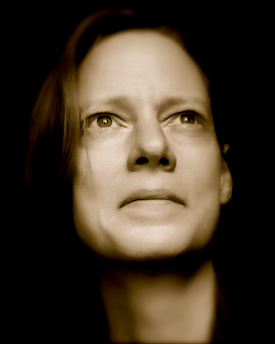 Kim Diehnelt is compelled to create beauty through her work as a conductor, composer and artistic coach.
Kim Diehnelt is compelled to create beauty through her work as a conductor, composer and artistic coach.
Trained in the United States and Europe, Kim Diehnelt established her craft as conductor and composer in both Finland and Switzerland, leading Baltic, Russian, and European ensembles. In Helsinki, Kim founded the Helsinki Camerata, a group dedicated to a chamber music approach to orchestral performance. She is currently the Conductor of the Me2/Burlington Orchestra in Burlington, VT.
Kim Diehnelt has been composing works for solo instruments, chamber, orchestral and choral ensembles since 2011. Her style is best described as a “Nordic Palestrina” as her works possess a lyrical, vocal quality with an attention to beauty and the sense of an unfolding story. She was a semifinalist for The American Prize in Composition in the Professional Orchestra division in 2015 for her work “Montegar” for viola and strings. Her debut album of chamber music for mixed ensembles “Caprio” was released on an independent label in August 2019. Kim was named the KISMET Foundation’s 2018 Artist-in-Residence and created the work Yarmouth Time for Violin and Cello which captures the inspiration of Maine’s natural beauty, dynamic winter climate, and the spirit of the town of Yarmouth, ME.
PROGRAM NOTES
Los Angeles Cellist Maksim Velichkin requested of me an elegy for solo cello. In thinking about this elegy, this mourning or praise of the dead, my thoughts were of the continuing tragedies of school shootings. This elegy is my imagining of the terrors of the students trying to make sense of the shooting, huddled in classrooms-sometimes next to a bloodied body-and leaving the school and passing the dead. This elegy is for those dead, and for those survivors who witnessed these horrors, and for the surviving family and friends of the dead whose souls are forever marked by these tragedies.
Sadly this elegy is also for those lives lost to mass shootings, and the survivors, a tragedy we experience far, far too often.
The elegy has been expanded and transposed for piano solo and for two cellos.
Matthew Hetz gives great thanks to PARMA Recordings, and cellist Ovidiu Marinescu, for the opportunity to present his Elegy for Solo Cello in their MOTO VIRTUO II concert in this time of COVID-19.
BIO
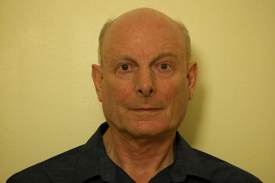 Matthew Hetz (March 26, 1957), a Los Angeles native, began piano lessons at age 16 whose primary teachers were Marlene Kendall and Howard Weisel, both students of Jakob Gimpel. He began playing the violin at age 23-he is primarily self-taught. Hetz studied composition with former NACUSA President Marshall Bialovsky at California State University at Dominguez Hills, from which he graduated Cum Laude.
Matthew Hetz (March 26, 1957), a Los Angeles native, began piano lessons at age 16 whose primary teachers were Marlene Kendall and Howard Weisel, both students of Jakob Gimpel. He began playing the violin at age 23-he is primarily self-taught. Hetz studied composition with former NACUSA President Marshall Bialovsky at California State University at Dominguez Hills, from which he graduated Cum Laude.
His works have been performed throughout Los Angeles and nationwide, including Hetz performing his piano works at NACUSA concerts at Hollywood Piano Company, Burbank; and Steinway Piano Gallery, Beverly Hills. Hetz is an instructor at Emeritus/Santa Monica College. He is past president/executive director of the Culver City Symphony Orchestra/Marina del Rey Symphony, and also plays violin in the orchestras. He is an environmental and mass transit advocate.
PROGRAM NOTES
For Ashley is part of a larger work, Ash, by the Sleeping Giant Collective. It is a five-minute solo cello piece that takes inspiration from the prelude to Bach’s 4th Cello Suite.
BIO
Andrew Norman (b. 1979) is a composer, educator, and advocate for the music of others. Recently praised as “the leading American composer of his generation” by the Los Angeles Times, and “one of the most gifted and respected composers of his generation” by the New York Times, Andrew has established himself as a significant voice in American classical music. Upcoming engagements include a year as Carnegie Hall’s Debs Composer’s Chair (2020/2021), the premiere of his violin concerto with Leila Josefowicz and the Los Angeles Philharmonic, and an American tour with Kiril Petrenko and the Berlin Philharmonic.
PROGRAM NOTES
In Stephen King’s IT, the clown monster returns to Derry to terrorize the town every 27 years. That’s 3-cubed years. Triple meter in music has the potential for power and excitement. It provides expressive possibilities such as hemiola. I am fond of 9|8 time, which is 3-squared, and is felt musically as three pulses of triplets. I once wrote a movement in 9|8 time over which was layered a three-measure pattern, thus making 9 pulses of triplets.
The form of my Intermezzo is three part: A-B-A. The “A” parts are in 9|8 time and the middle part is in 3|4 (triple meter with duple subdivisions). I modeled the form on Johannes Brahms’ Intermezzos Opus 117, Numbers 1 and 2, for piano. They are in triple meter throughout and have the A-B-A structure, with the middle part subdued in contrast. The middle part of my Intermezzo has a slightly slower beat than the A sections and is more lyrical.
I don’t use uncommon bowing techniques and I stick to normal bowing (arco) and pizzicato (plucking). I introduced pizzicato in the middle of the first section and again at the close of the middle section, transitioning to the recapitulation. Then the very last note of the piece is a plucked low D. The overall tonality of the piece is D.
My composition is abstract. I don’t often have a narrative program or picture in mind. I reconstruct material from previous compositions, sometimes from completely different instruments. This piece for cello solo had origins in a viola and piano sonata.
BIO
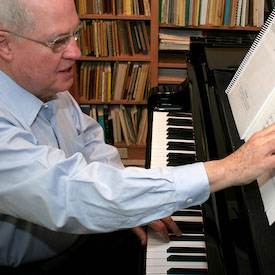 David Stewart was born 1941, in Miami FL, and earned a B.Mus. degree from Oberlin College Conservatory of Music, 1965, and a M.A. degree from Smith College, 1969. His principal teachers were Bower Murphy, William Klenz, Joseph Wood, Walter Aschaffenburg, and Alvin Etler in composition; David Pizarro on organ; Arthur Dann on piano, all of blessed memory.
David Stewart was born 1941, in Miami FL, and earned a B.Mus. degree from Oberlin College Conservatory of Music, 1965, and a M.A. degree from Smith College, 1969. His principal teachers were Bower Murphy, William Klenz, Joseph Wood, Walter Aschaffenburg, and Alvin Etler in composition; David Pizarro on organ; Arthur Dann on piano, all of blessed memory.
Stewart is a composer, pianist, and organist. His career began in academia and migrated into computer technology from 1979 onward. His style of composing also changed as he pursued a new occupation.
From 1969 to 1979, he taught music theory, composition, and electronic music at Eastern Michigan University and then Kent State University. His style of composition during this period was twelve-tone and aleatoric. Living in Ohio from 1975 to 1985, he was a member of the Cleveland Composers Guild which provided many performances of his chamber music. In these early years he won several prizes for his chamber music.
A self-taught computer programmer, he began studying computer-generated sound in 1969. He produced electronic music both by Moog synthesizer and by computer using the seminal MUSIC4 program on Digital Equipment Corporation PDP-11’s.
From 1979 until retirement in 2013, Stewart worked as a computer systems professional. Having been a church musician most of his adult life, he is currently organist at St. Luke’s Episcopal Church in Ferndale MI.
After leaving academia, Stewart’s aesthetic changed. He wanted to write more spontaneously the sounds from his imagination–music that was accessible to the performer and audience, while maintaining his stylistic integrity. He became more tonal yet still used twelve-tone and aleatoric techniques when justified.
He is a member of the American Society of Composers, Authors, and Publishers (ASCAP); American Composers Forum; Society of Composers Inc.; Conductors Guild; and the American Guild of Organists. He is the Secretary of the Board of Directors of the Warren Symphony Society Inc., in Warren MI. The Warren Symphony premiered three of Stewart’s works in the 2000’s.
Stewart believes that leaving academia for the business world was a great benefit to his art. Music is the business of entertaining. The composer must satisfy, even delight, the paying audience. His compositions connect with the listener’s ear and heart.
 New Music USA is the leading national resource for new music. We are here for the whole new music community – we support and connect music makers, organizations, and audiences by:
New Music USA is the leading national resource for new music. We are here for the whole new music community – we support and connect music makers, organizations, and audiences by:
- providing financial support through our project grants
- fostering new connections through our programs
- deepening knowledge and encouraging appreciation through our online magazine NewMusicBox, our radio station Counterstream, and our New Music Directory.
As we go about our work, we make a point of not defining too precisely what we mean by new music. We simply want all music that’s not commercially viable to flourish through its originality and diverse forms of expression. We also believe that it’s a spectacular time for creativity and collaboration and we are keen for the work we support to reflect the talent of creators and practitioners from all backgrounds and from every part of the United States.
Nationally and internationally, New Music USA plays a crucial role through its engagement with Performing Arts Alliance, the International Association of Music Information Centers, the International Society for Contemporary Music and more. Those partnerships help us represent the interests of our constituents amongst organizations we can learn from and collaborate with from across the US and beyond.
In each different context for our work, our focus is on the music; this is what unites everyone engaged with our community. Our newsletters, magazine, radio, and social media channels present a snapshot of that music including artists in their own voice, opportunities for you to apply for support and details of live performances near you.

Don’t Miss A Beat
The data submitted through this form will be processed and stored in accordance with our Privacy Policy.

